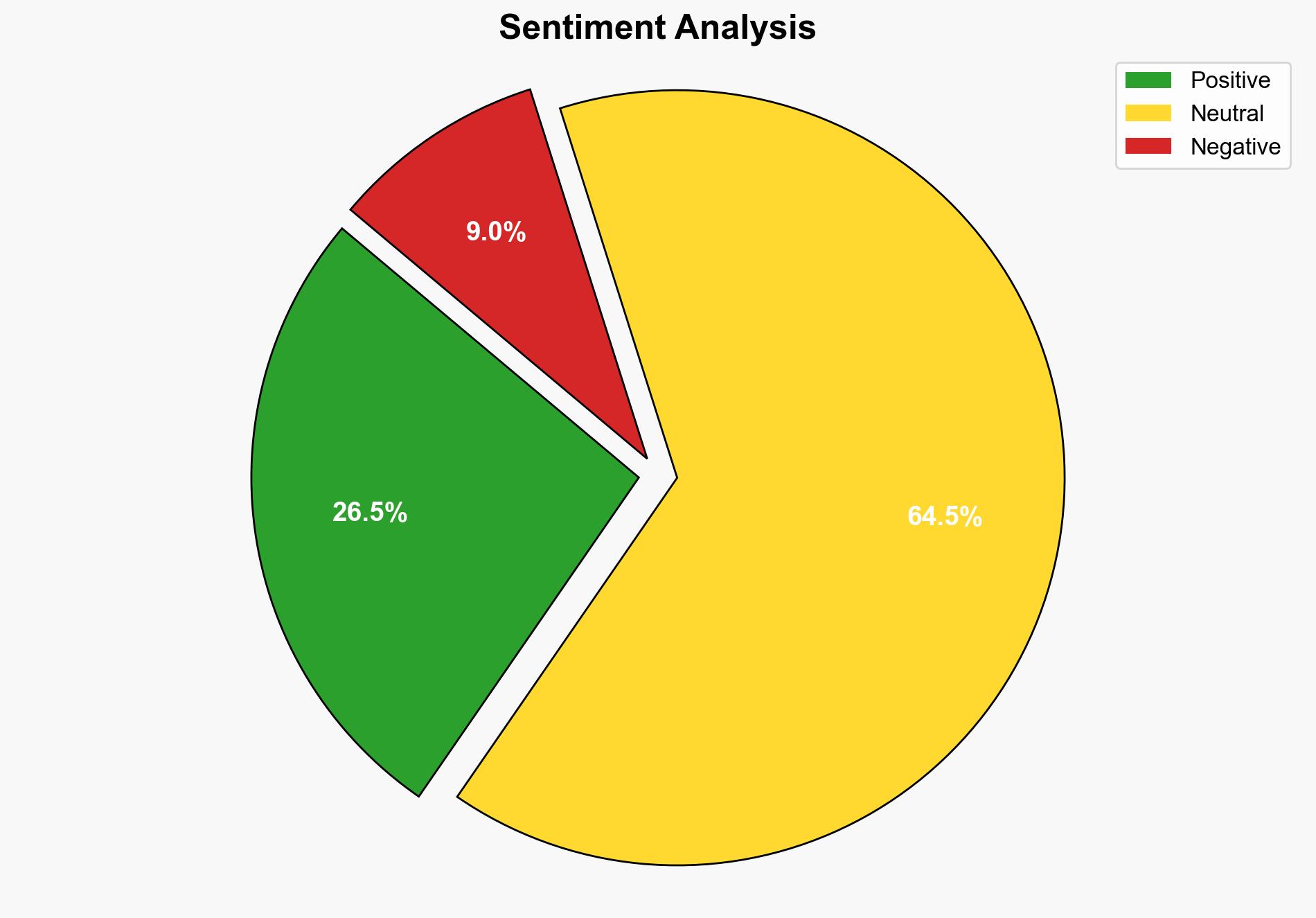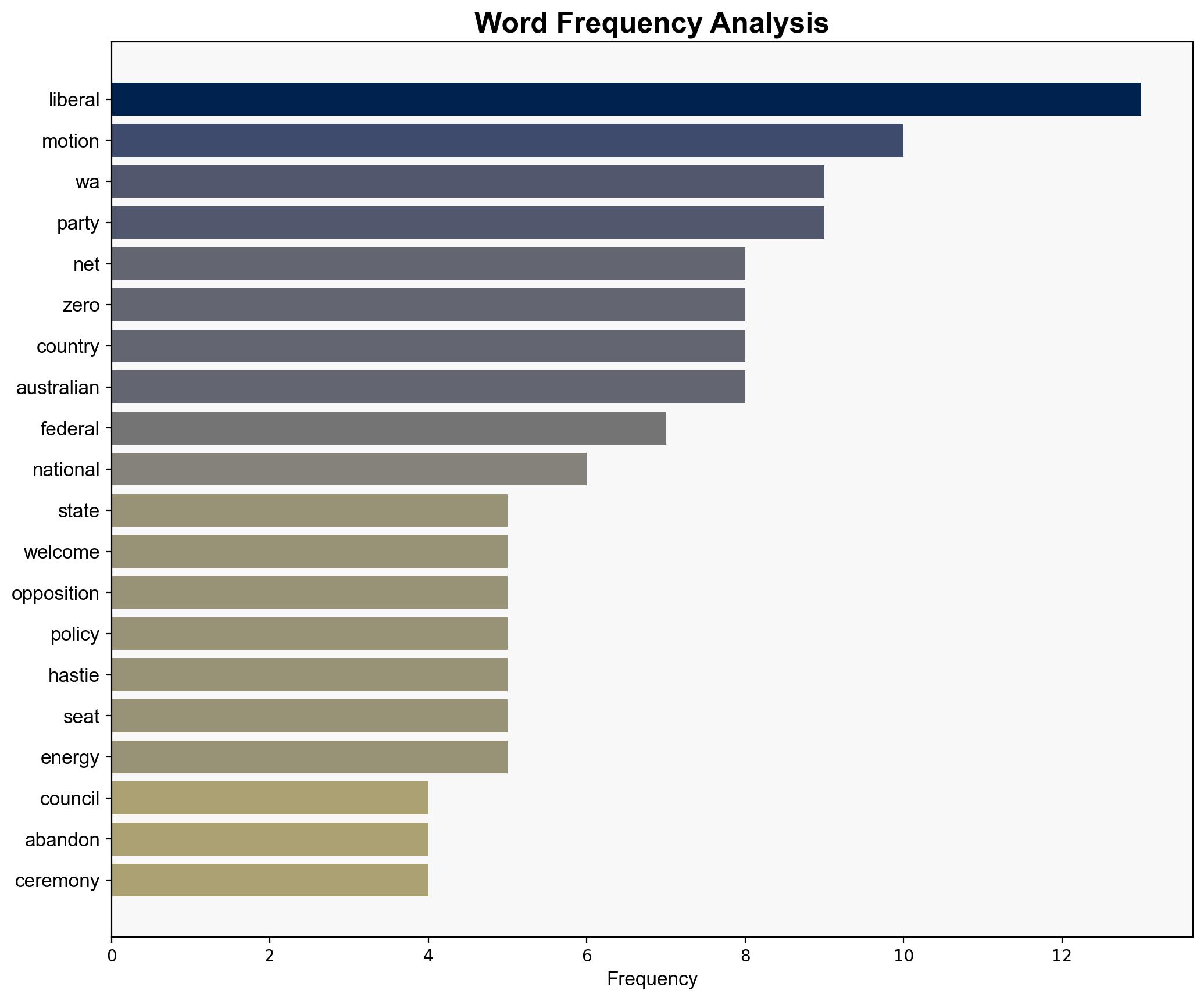WA Liberals support plan to abandon net zero by 2050 policy – ABC News (AU)
Published on: 2025-07-26
Intelligence Report: WA Liberals support plan to abandon net zero by 2050 policy – ABC News (AU)
1. BLUF (Bottom Line Up Front)
The Western Australian Liberal Party’s support to abandon the net zero by 2050 policy indicates a significant shift in energy policy stance, potentially influencing national policy and political dynamics. The most supported hypothesis suggests this move is strategically aimed at regaining political ground in Western Australia by aligning with economic and energy security concerns. Confidence Level: Moderate. Recommended Action: Monitor political developments and assess potential impacts on national energy policy and international climate commitments.
2. Competing Hypotheses
Hypothesis 1: The WA Liberal Party’s decision is primarily driven by political strategy to regain electoral support in Western Australia, emphasizing energy security and economic stability over environmental commitments.
Hypothesis 2: The decision reflects a broader ideological shift within the party, prioritizing traditional energy sectors and questioning the feasibility of net zero targets, potentially influencing national policy debates.
Using ACH 2.0, Hypothesis 1 is better supported by the context of recent electoral losses and the emphasis on economic arguments in the motion. Hypothesis 2 lacks direct evidence of a coordinated national ideological shift.
3. Key Assumptions and Red Flags
Assumptions: Hypothesis 1 assumes that electoral strategy is a primary motivator, while Hypothesis 2 assumes a coherent ideological stance across the party.
Red Flags: Lack of detailed data on internal party discussions and potential influence from external stakeholders. Possible cognitive bias towards economic arguments over environmental concerns.
4. Implications and Strategic Risks
The decision could lead to increased political polarization on climate policy in Australia, affecting international relations and commitments. Economic focus may bolster short-term energy security but risks long-term environmental and economic consequences. Potential escalation in political rhetoric could destabilize bipartisan efforts on climate action.
5. Recommendations and Outlook
- Monitor political developments in Western Australia and potential ripple effects on national policy.
- Engage with stakeholders to assess impacts on international climate commitments.
- Scenario Projections:
- Best Case: Balanced policy approach emerges, integrating economic and environmental priorities.
- Worst Case: Increased political division undermines national climate strategy and international reputation.
- Most Likely: Short-term political gains for WA Liberals, with ongoing national debate on energy policy.
6. Key Individuals and Entities
Andrew Hastie, Sussan Ley, Kate Chaney, Barnaby Joyce
7. Thematic Tags
national security threats, energy policy, political strategy, climate change





